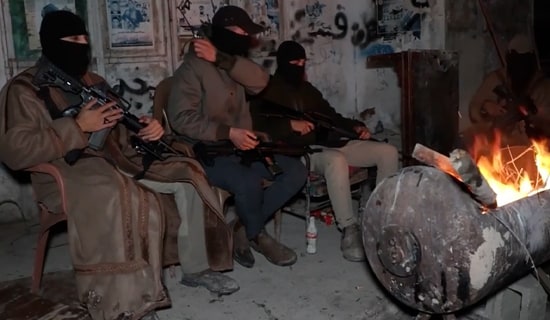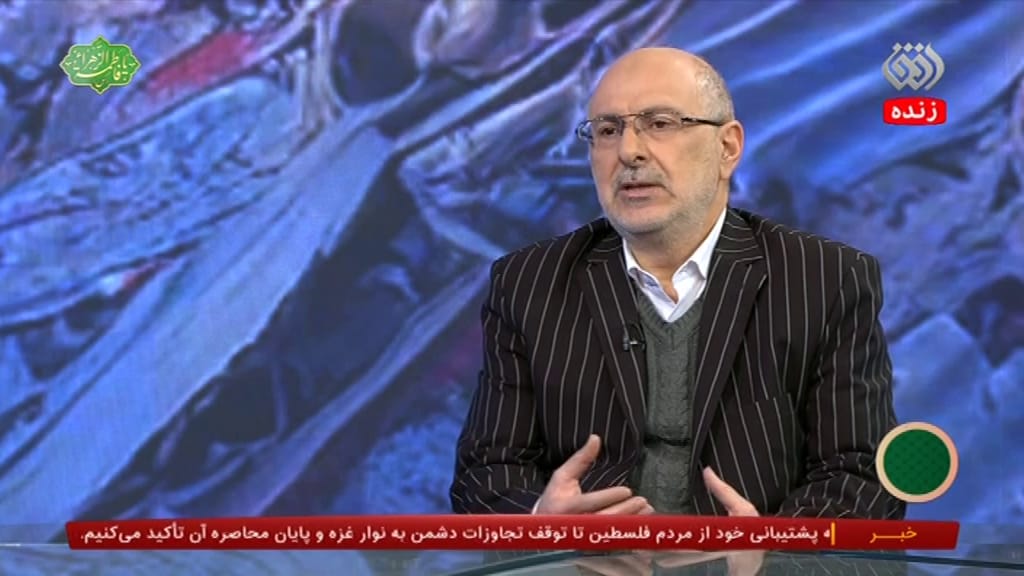
French women's rights activist Henda Ayari, a Salafi-turned-liberal Muslim, accused Swiss Muslim thinker Tariq Ramadan of raping her at a Paris hotel in 2012. In an interview on the Egyptian Dream TV channel on April 7, Ayari, who has founded an NGO to help, among others, women subjugated by Islamic extremists, told her life story and recounted what had happened when Ramadan allegedly lured her to a hotel room and raped her. Ayari, who describes herself as "secular feminist who defends women's rights," said that she wrote her book, J'ai choisi d'être libre, describing her path from Salafism to liberalism, after the 2015 Bataclan terror attack, when she realized the danger inherent in political Islam and the Salafis. The book included a chapter on "Zubair," whom she later identified as Ramadan. He was someone I admired and trusted completely, "like a big brother or an imam," she said, describing the alleged encounter. "All of a sudden, his behavior changed. He became very violent toward me." Ayari further said: "I thought I was going to die that night because he choked me and slapped me," alleging that Ramadan had said to her: "This is what you are asking for because you don't wear the hijab." Ramadan is currently being detained in France on charges of raping two women, and several other women have made similar accusations against him.
Following is a transcript:
Henda Ayari: I decided to write my book following the [2015] Bataclan terrorist attack. I was shocked when I saw the victims, the killings, and the blood on TV. I realized that political Islam and the Salafis constitute a danger.
I was coerced into marriage when I was twenty. I went to Tunisia on vacation, and within a day, I was married to a Salafi man I did not know. For the subsequent ten years, I lived as a prisoner with that man. I gave birth to three children and wore the niqab. We traveled to Saudi Arabia, where he wanted us to settle. He used to beat me up and had no respect for me. One day, I decided to run away with my three children.
When the Bataclan attack took place, I decided to tell my story on my Facebook page. I posted my pictures before and after – at age twenty, wearing a robe, and at age 38, without even a hijab. I wrote that I had used to be an imprisoned, oppressed woman. Today, I am a free woman. Following my Facebook post, I was contacted by the Flammarion publishers. They suggested that I write a book and tell my story, in order to help other women. I also founded an NGO to help women.
In that book, in a chapter I titled “Zubair,” I wrote about what had happened to me. A man I had admired raped me. That man is Tariq Ramadan.
[…]
There are French women who converted to Islam, and who, by the age of 17-18, have two or three children. They were married at a very young age. Some 16-year-old girls were contacted by Salafi Islamists via Facebook, and then had a religious marriage via Skype.
I know a girl who was contacted by a man. He signed a religious contract with her over Skype. At night, he had sex with her, and she got pregnant. Then he dumped her.
In France, many girls who converted to Islam are miserable, because they are abandoned, forgotten and deserted, with children. They receive no help or support. They wear the hijab and are not sure whether to keep it on or take it off. They are miserable. I was contacted by elderly French people whose children converted to Islam. They do not know what to do, and they contact me for advice, because their children do not want anything to do with them. One man told me that his daughter refuses to talk to him altogether, ever since she converted to Islam. She had a religious marriage with a Salafi man.
I think that there is a real problem. Why do the French fear Islam? Because of those Islamists, who use Islam in order to control and imprison women, and in order to accomplish political goals. I denounce this. I remain a Muslim and am proud of my Islam. I am a secular feminist who defends women’s rights. Today, I call upon French politicians to help NGOs like mine, so that these NGOs can help women.
[…]
There are also girls who were recruited on Facebook and the Internet to go to Syria. I know girls who tried to travel to Syria after communicating with a guy on Facebook. The guy would then propose that the girl go to Syria. I know a guy who traveled there. He was told that he would be working for a humanitarian organization, but, in fact, these guys are used as cannon fodder. These guys are being sacrificed in the war, believing that this is Islam. The women are used like whores or captive slavegirls to give birth to children.
[…]
In 2012, I posted on Facebook a picture of myself without a hijab. That day, Tariq Ramadan wrote to me: “Assalaam alaykum, sister Henda. How are you? What you are doing is not good.”
[…]
He said that I was drawing the gaze of men and that this is not good. I thought that this couldn’t really be Tariq Ramadan. Tariq Ramadan would not have sent me such a message. I wrote back: “Tariq Ramadan wouldn’t have time for this. You are impersonating him.” He wrote: “I really am Tariq Ramadan. If you don’t believe me, I’ll prove it to you.” He suggested that we move to Skype. I agreed, and he switched on the camera, and I saw the real Tariq Ramadan in front of me. I was shocked. It was incredible. I didn’t expect this – Tariq Ramadan talking to me, taking an interest in me, appearing before me. I was a little shocked. Then he said he could call me if I wanted. He asked for my phone number, and suggested that we meet the following Saturday.
[…]
I considered him to be like a big brother or an imam. I had a lot of questions about Islam that I wanted to ask him, and besides, I had a chance to meet someone I admired. I trusted him. I didn’t expect him to turn against me.
[…]
He said: “You should come up to my hotel room, because there are many people who might recognize me. It’s better if we talk in my room, where it will be quieter.” Since I saw him as a brother and an imam, I trusted him completely. I admired him and thought him to be the model Muslim man.
[…]
[When I got there], he went to wash his hands. Then he shook my hand and gave me a welcome kiss. I didn’t expect this, but I admit that I let him do it. Then, all of a sudden, his behavior changed. He became very violent toward me. He pushed me onto the bed, and that was it. He did what he did.
[…]
When he pushed me onto the bed, I said no. I said to him that these things could get out of hand. This only made him angrier, and he did what he wanted. He was very violent. I thought I was going to die that night because he choked me and slapped me. He said to me: “This is what you are asking for because you don’t wear the hijab.”
[...]














